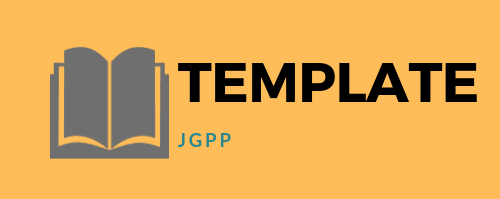Appraisal of Road Transport Policy Reform in Nigeria: A Case of Infrastructural Deficit
Abstract
The study examined the road transport system reform in Nigeria. This was intending to assess the adequacy of road transport reform in Nigeria. The study employed both primary and secondary data. This study employed a stratified sampling technique for the choice of civil servants who are at directorate cadre with a total population of 35 in the Federal Ministry of Transport, Federal Ministry of Works and Federal Road Maintenance Agency. For interview administration, a purposive sampling technique was used to select the sample size of (FMW 3; FMT 2; FERMA 1) 6 Directors which constituted 17.1% who are the custodian of road transport policy. Observation of road infrastructures and office equipment was carried out. The secondary sources of information that were employed included relevant official publications and records from the Federal Ministry of Transport, Federal Ministry of Works and Federal Road Maintenance Agency who are a major player in road transport; journal articles, periodicals, and internet sources. Data collected through the use of the in-depth interview from the Directors of the two ministries and agency were analyzed using descriptive statistics such as percentages, tables, and frequency distribution and graphs. The results revealed that the road transport system reform in Nigeria was structurally deficient as it did not address all social classes especially the physically challenged and the elderly among others. The study concluded that as a result of hindrances associated with road transport reform the expected road infrastructure expansion and facilities upgrade through the reform recorded a partial success.
Keywords
Full Text:
PDFReferences
Agbonkhese, O; Yisa, G.L; Agbonkhese, E.G; Akanbi, D.O; Aka, E.O; Mondiga, E.B. (2013). Road Traffic Accidents in Nigeria: Causes and Preventive Measures. Journal of Civil and Environmental Research Vol.3, No. 13. pp20-30.
Buhari, M. (2000). “The Role of Infrastructural Development and Rehabilitation in Sustainable Economic Growth in Nigeria”, A Paper Presented at The All Peoples Party Economic Summit,Held at The Ladi Kwali Conference Centre, Sheraton Hotel and Towers, Abuja, from 9th to 10th November 2000.
Department for Transport (2005), National Travel Survey. United Kingdom: Dft publications.
Department for Transport (2006), Transport Demand to 2025 and the Economic Case for Road-Pricing and Investment .United Kingdom: Dft publications.
Dye, T.R. (1972): Understanding Public Policy. N.J.: Prentice Hall.
Eddington, R. (2006) “Main Report: Transport’s Role in Sustaining the UK’s Productivity and Competitiveness,” London: HM Treasury.
Eddington, R. (2006). “Speech by Rod Eddington to the Commonwealth Club in London on 4- 12-2006”. Department for Transport.
Easton, D. (1979). A Framework for Political Analysis. London: University of London Press.
Federal Government of Nigeria (2010). Draft National Transport Policy. Abuja: Government Press.
Federal Republic of Nigeria (1999). Constitution of the Federal Republic of Nigeria. Abuja: Government Printers.
Friedrich, C. (1975). “Political Decision Making, Public Policy and Planning” in J. Uveges Jr; (ed); The Dimensions of Public Administration. Boston: Holbrook Press Inc. pp111.
Fulmer, J. (2009). "What in the World is Infrastructure?". PEI Infrastructure Investor (July/August): 30–32.
Graham, S.& Marvin, S. (2001).Splintering Urbanism. London: Routledge.
Gwilliam, K & Shalizi, Z(1996)Sustainable: Priorities for Policy Reform. Washington, DC: World Bank. URL: http://www.worldbank.org/...ts/sustain-transp-1996.pdf Retrieved October 25th, 2016
Harris, M. (1968). Cultural Materialism. Altamira.
Igwe, C.N., Oyelola, O.T., Ajiboshin I.O.& Raheem, S. (2013). A Review: Nigeria’s Transportation System and the Place of Entrepreneurs.Journal of Sustainable Development Studies Vol. 3, No. 2, pp168-180.
Jean-Paul R., Claude C.& Brian, S. (2006).The Geography of Transport Systems. New York: Routledge
John, V. (1971). The Production Process in Education in D. Adams (ed.) Education in National Development. London: Routledge and Kegan Paul Ltd.
Myles, G. D. (1995).Public Economics. Cambridge: Cambridge University Press. pp263- 264.
OECD (2006) DAC Guidelines and Reference Series Applying Strategic Environmental Assessment: Good Practice Guidance for Development Co-operation, Paris: OECD publications.
Olawole, M. O. and Aloba, O. (2014). Mobility Characteristics of the Elderly and Their Associated Level of Satisfaction with Transport Services in Osogbo, Southwestern Nigeria. Transport Policy 35 p105-116.
Richard, H. (1975). The Study of Public Policy. Indianapolis: The Bobbs – Merril Co. Inc. p5.
Sharkansky, I. & Van Meter, D. (1975). Policyand Politics in American Governments. New York: McGraw Hill Book Co. Ltd. p10.
Soyode, A. (1980). ‘Measure of Efficiency in Public Enterprises. Some General Theoretic Issues’ in M. J . Balogun (ed.) Managerial Efficiency in the Public Sector. Ife: University of Ife Press.
Sumaila A.F. (2013), Building Sustainable Policy Framework for Transport Development: A Review of National Transport Policy Initiatives in Nigeria”, International Journal of Development and Sustainability, Vol. 2 No. 2, pp 505-520.
Van Horn, C. and Van Meter, D. (1975). The Policy Implementation Process: A Conceptual Framework. Administration and Society, Vol. 6, No. 4 (February), pp445- 488.
Webber, C. & Berube, A. (2008) “Smarter, Stronger Cities: U.K. Urban Policy Innovations and Lessons for the U.S.,” Washington: Brookings.
Williamson, J.(ed) (1990) What Washington Means by Policy Reform. Washington DC: Peterson Institute for International Economics publisher.
World Bank (1994). World Development Report 1994: Infrastructure for Development. New York: Oxford University Press.
DOI: https://doi.org/10.18196/63110
Refbacks
- There are currently no refbacks.
Office:
Master of Government Affairs and Administration (MIP)
Postgraduate Building 2nd Floor UMY
Phone: +62 274 387 656 (ext: 173)
Jl. Brawijaya, Kasihan, Bantul, Daerah Istimewa Yogyakarta, Indonesia
View My Stats
This work is licensed under a Creative Commons Attribution-NonCommercial 4.0 International License.


